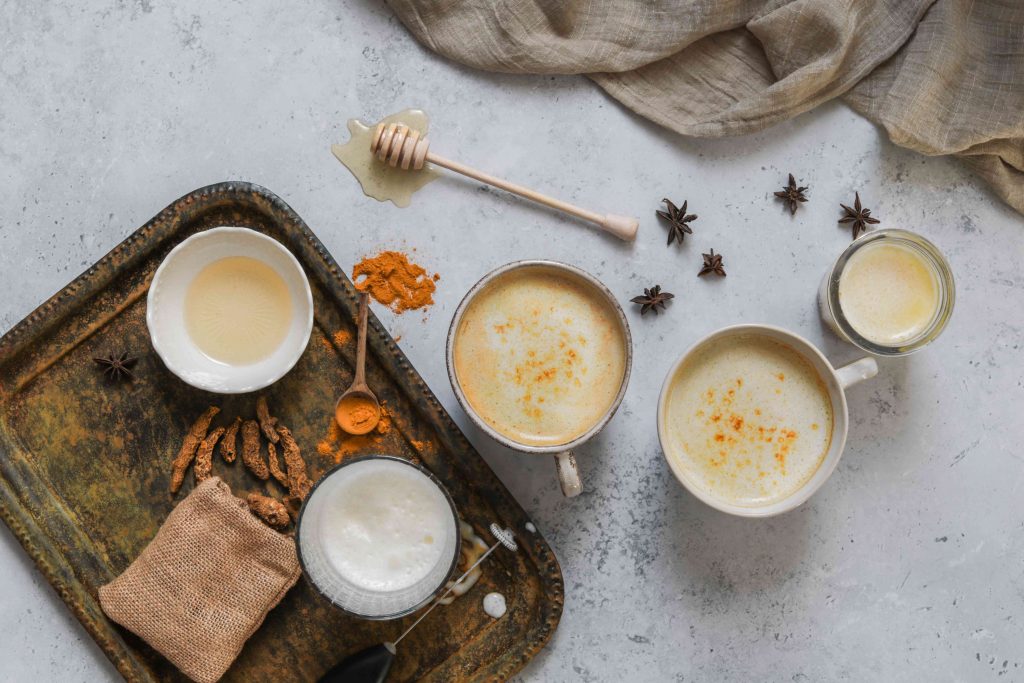:max_bytes(150000):strip_icc():format(jpeg)/Health-GettyImages-1298185631-94ab7452ddb6434ca4783c62d30f2363.jpg)
Turmeric and honey are foods that are also sometimes sold as dietary supplements. Curcumin, the active compound in turmeric, may help relieve pain and decrease inflammation. Honey contains compounds that may help reduce inflammation when taken by mouth.
Honey and turmeric may be consumed together in foods and supplements, and limited evidence suggests their effects may be stronger when combined.
Before combining the two, it’s important to know about their proper dosages and potential side effects individually and in combination.
Turmeric’s health benefits are attributed to curcumin, an active compound that gives the spice its yellow color.
Turmeric or curcumin supplementation may have the following anti-inflammatory effects:
- Decreased pain levels and inflammation severity in people with arthritis
- Reduced blood inflammation markers such as C-reactive protein
- Improved ulcerative colitis symptoms
Turmeric may also help with glucose (sugar) control. One study suggests it may help lower fasting blood glucose and HbA1c levels (markers used to diagnose and monitor type 2 diabetes) in people with metabolic conditions such as prediabetes, type 2 diabetes, and metabolic syndrome.
While there has been research on turmeric’s health effects, further high-quality research with larger sample sizes is still needed to fully understand its health benefits.
Honey contains hundreds of beneficial compounds that may support health in various ways:
- Soothes an irritated throat: May help reduce inflammation and ease throat discomfort
- Improves cough symptoms: Can decrease cough frequency and severity in people with upper respiratory infections like the common cold
- Supports oral and throat health: May help with oral mucositis, mouth sores, and throat inflammation caused by chemotherapy and radiation
Higher-quality studies are needed to confirm these benefits.
Some researchers suggest that honey may enhance turmeric’s anti-inflammatory effects.
A petri dish study showed that a combination of curcumin and manuka honey can protect against certain bacteria.
There is no evidence that taking turmeric and honey together offers people better health benefits than taking them separately. That said, honey can help mask the bitterness of turmeric and make it easier to consume.
You have several options for taking turmeric and honey together. When taking both, consider the form, dosage, and timing that are right for you.
Forms
You can find turmeric (or curcumin) and honey combinations sold as dietary supplements in capsules. Blends of honey and turmeric are also sold as spreads. You can make your own ground turmeric and honey mixtures as a spread, tea, golden milk latte, or many other recipes.
The dosage may vary based on how you take the combination.
Dosage
There are no scientifically recommended dosages for turmeric and honey combinations. The dosage of curcumin and honey can also vary between products. Studies have used a wide range of doses, ranging from 140-3,000 milligrams of curcumin and up to 70 grams of honey daily.
Many factors, including your age, sex, and health conditions, can affect your ideal dosage. You should talk to a healthcare provider for personalized guidance before taking any supplements—especially products with variable or unproven recommended dosages.
Timing
You can take turmeric and honey in the morning, afternoon, or night. No time seems better or worse than another for absorbing the active compounds.
Although research has examined the effects of these supplements over weeks and months, there is not enough evidence to suggest the ideal duration for supplementing turmeric and honey for health benefits.
How long it takes to notice benefits can vary depending on several factors, including the dosage and how you consume it.
Honey has no known food interactions, making it safe to take with turmeric. However, the dosage of honey can be important, especially for people with diabetes, since honey has high amounts of sugar.
Turmeric and conventionally formulated curcumin products are likely safe when taken orally (by mouth) in recommended amounts. However, some curcumin products designed to enhance bioavailability (the amount of supplement available for your body to absorb) may increase the risk of side effects. Higher bioavailability can help the body absorb more curcumin, ultimately increasing the dosage.
Turmeric can be unsafe for people who are pregnant or breastfeeding if taken in amounts greater than what’s typically found in food.
The United States Food and Drug Administration (FDA) does not regulate dietary supplements. It’s important to choose products tested by third-party laboratories to ensure they contain what they claim, with no harmful compounds.
Potential Drug Interactions
Turmeric may interact with medications, including:
- Cancer medications
- Anticoagulants (blood-thinning medications)
- Antidepressants
- Antihistamines
- Antibiotics
- Heart medications
Honey may also interfere with blood clotting. Consult your healthcare provider before consuming honey while using anticoagulant medications. It may also interact with the antiseizure drug Dilantin (phenytoin) by increasing the amount of it in your body, which can increase the risk of the drug’s side effects.
If you take any medications, it’s a good idea to talk with your healthcare provider about starting new supplements so they can advise you on the risk of interactions.
High doses of turmeric supplements (with higher bioavailability) can lead to excessive intake if taken above the recommended amounts.
Large amounts of honey can cause a spike in blood glucose levels, especially if eaten alone. It’s important, especially for people with diabetes, to be aware of the sugar content naturally present in honey.
While rare, turmeric or curcumin can cause side effects such as:
- Abdominal pain
- Nausea
- Diarrhea
- Headache
- Allergic reactions
Honey is unlikely to cause side effects for most people, but children under 1 year old should not eat it because it may cause a severe poisoning called botulism.
Research is mixed on honey’s effects on blood sugar and lipid levels in people with diabetes. It’s important to consult your healthcare provider before consuming high amounts of honey in your daily diet.
Turmeric and honey may help reduce inflammation, manage inflammation-related conditions, and relieve pain.
Turmeric and honey may have more benefits when taken together. However, there is limited evidence on the effectiveness, dosage, and side effects of combining turmeric and honey.
Using turmeric and honey in recipes at home is safe for most people. That said, it’s best to consult a healthcare provider before using turmeric and honey supplements.








